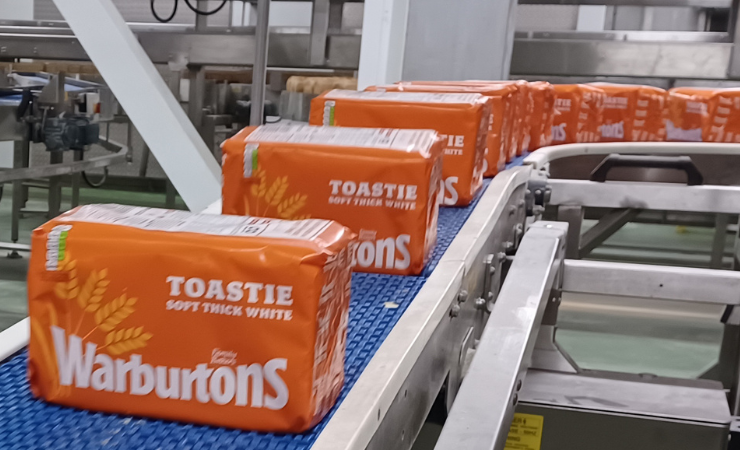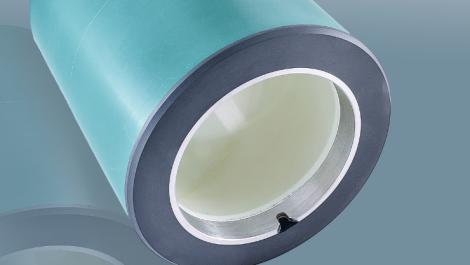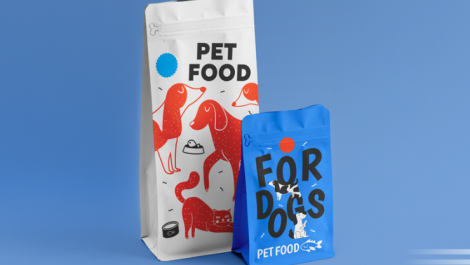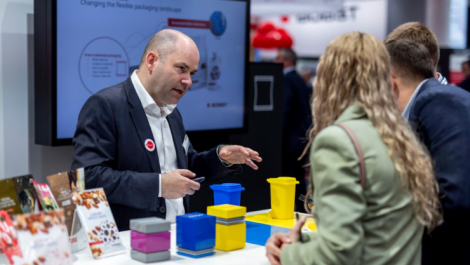Lucy Shepherd has been head of packaging at UK-based bakery brand Warburtons since November 2021, already helping to deliver significant environmental and operational gains. Even so, she tells Andy Knaggs, the job is never finished.
Professional fulfilment, pride and passion, community – arguably, these things are not talked about enough in this industry, where we are hard-headedly consumed with formats, thicknesses and financial performance. But when you speak to a packaging professional such as Lucy Shepherd about a brand like Warburtons, these softer values – as comforting as the smell of a freshly-baked loaf of Warburtons bread – increase in prominence.
Ms Shepherd has been the head of packaging at the Bolton, UK[1]based family bakery business since November 2021. It claims to be the UK’s largest bakery brand, producing more than two million products every day – from bread and rolls to crumpets, teacakes and bagels – at 11 bakeries. The business began in 1876 and now the sixth generation of Warburton walks its corridors.
This strong family involvement produces a particular kind of culture – one that is less corporate in the traditional sense. ‘The Warburton family is very approachable. There aren’t lots of corporate layers,’ Ms Shepherd told FlexoTech. ‘If you build a good enough business case for something, it’s possible to get it signed off quickly. We have generations of people that have worked for the business – whole families working here. It is very community oriented, and people have love and passion for the business.’
Formative years
Ms Shepherd is not – to use a northern English colloquialism – a local lass herself. She hails from much further south, in St Neots, Cambridgeshire, and it was there that she spent her formative years in the packaging sector, at St Neots Packaging. This was acquired by Coveris in 2014, opening many opportunities with different substrates. Ms Shepherd was heavily involved in design and development during this time, but in 2016 she moved on, joining what was just becoming Saica Flex in Wigan. Here she was involved in establishing an innovation centre for flexible packaging.
Four years later, what amounts to a quest for greater professional fulfilment drove another career change. She says, ‘I decided I wanted to sit on the other side of the table. I wanted to work for a food manufacturer and guarantee that I could make an impact. I had been selling ideas but never really knowing if they would be taken up.’
Initially, this client-side ambition took her to Bakkavor, in February 2020, where she managed the development of the Tesco and Sainsbury supermarkets’ private label packaging portfolios. Sustainability, recyclability and lightweighting were hot buttons (as they still are), and in her first year in the business, Ms Shepherd supported the reduction of Bakkavor’s Tesco packaging portfolio by 163 tonnes, with a further 89 tonnes removed and 17 tonnes made recyclable, purely through small changes.
Then she got the job at Warburtons, where the incumbent head of packaging had been in the business for 46 years, giving her ‘big shoes to fill and lots to learn’. She has responsibility for making the right packaging decisions for product quality, sustainability, and the operation of the business, but crucially she has that ability to make a real difference.
Down-gauging
This she has been busily doing. Since taking over as head of packaging, Ms Shepherd has seen through a down[1]gauging of the PE bags that loaves are packed in, saving 172 tonnes of plastic annually. Another project currently underway is looking at reducing ink on the packaging to make the packs more recyclable. Warburtons is known to UK consumers for its wax paper wrappers too, which is highly functional, in that it keeps moisture in and keeps the loaves of bread softer for longer. It is not the highest scorer for sustainability though.
‘Wax paper is built into the heritage of the business and the nostalgia people feel towards it,’ she says. ‘In the North-West of England especially, people have grown up with that packaging. We are currently looking to develop an easier to recycle option for our wax paper.
‘What we are trying to do does not exist in the market currently and we’re working with partners in the supply base – both materials and coatings – to trial new solutions, with the intention of moving that packaging up the waste hierarchy so that it can be put in the recycling bin at home.
Done or perfect?
Like any major packaging producer, Warburtons is facing up to the challenge of packaging sustainability, and this forms a significant part of Ms Shepherd’s work currently. In talking about this, she is reminded of a question that was posed to her at her interview for the job with the bread business: what is more important, done or perfect? She says she deliberated for some time before answering; done, but she would be upset if it wasn’t perfect as well.
‘The steps we have made to improve our packaging sustainability are great, but it’s not perfect. We have done a lot but there is always more to do. EPR is also a challenge, but data collection has always been part of the job – you’ve got to do it.’
A lot of data is being collected, both for Warburtons and its partners. Is the business ready for EPR? ‘Yes – but it’s that done or perfect thing, isn’t it.’
It would help if the parameters of EPR were known, but in the UK, where Warburtons does most of its business, there are still questions that remain unanswered. It is what it is, and a packaging manager like Lucy Shepherd simply has to get on with the job.
‘We don’t have all the information on EPR yet, but we do know that the more recyclable a pack is, the less weight it has, the better its place in the waste hierarchy for recycling, the more beneficial that will be when it comes to calculating cost for the materials,’ she says. ‘Our job as packaging managers is to understand what’s happening in our businesses, communicate that and make sure we are ready for it. We know we have a hefty bill coming for EPR, so what can we do about it? We can make incremental changes, look at materials, implement lightweighting and decomplex the types of materials we use to reduce their environmental impact.
Quality is critical
It is critical in this process to never lose sight of the importance of product quality – all decisions around packaging must be viewed through that lens, as well as the bigger picture of sustainability, cost, and operational efficiency.
Juggling all these issues calls for real commitment from packaging professionals. It helps to be something of a packaging nerd, says Ms Shepherd – a badge she is happy to wear. ‘Having a lot of passion for what you do is incredibly important,’ she continues. ‘We have a really strong ethic around trying to do the right thing for our business, our consumers and our products. You have got to strongly believe that changing to this or that substrate is the right thing to do.’
And her enthusiasm for and commitment to her work is beyond question as she concludes, ‘Packaging is amazing – it moves at such a pace that there’s always something new to look at. That’s why packaging is so exciting to work in. We’re always horizon-scanning for new materials and technologies and looking across the world for packaging innovations. We are genuine packaging nerds. Even when I’m on holiday I’m looking out for new packaging ideas in the supermarket.’






